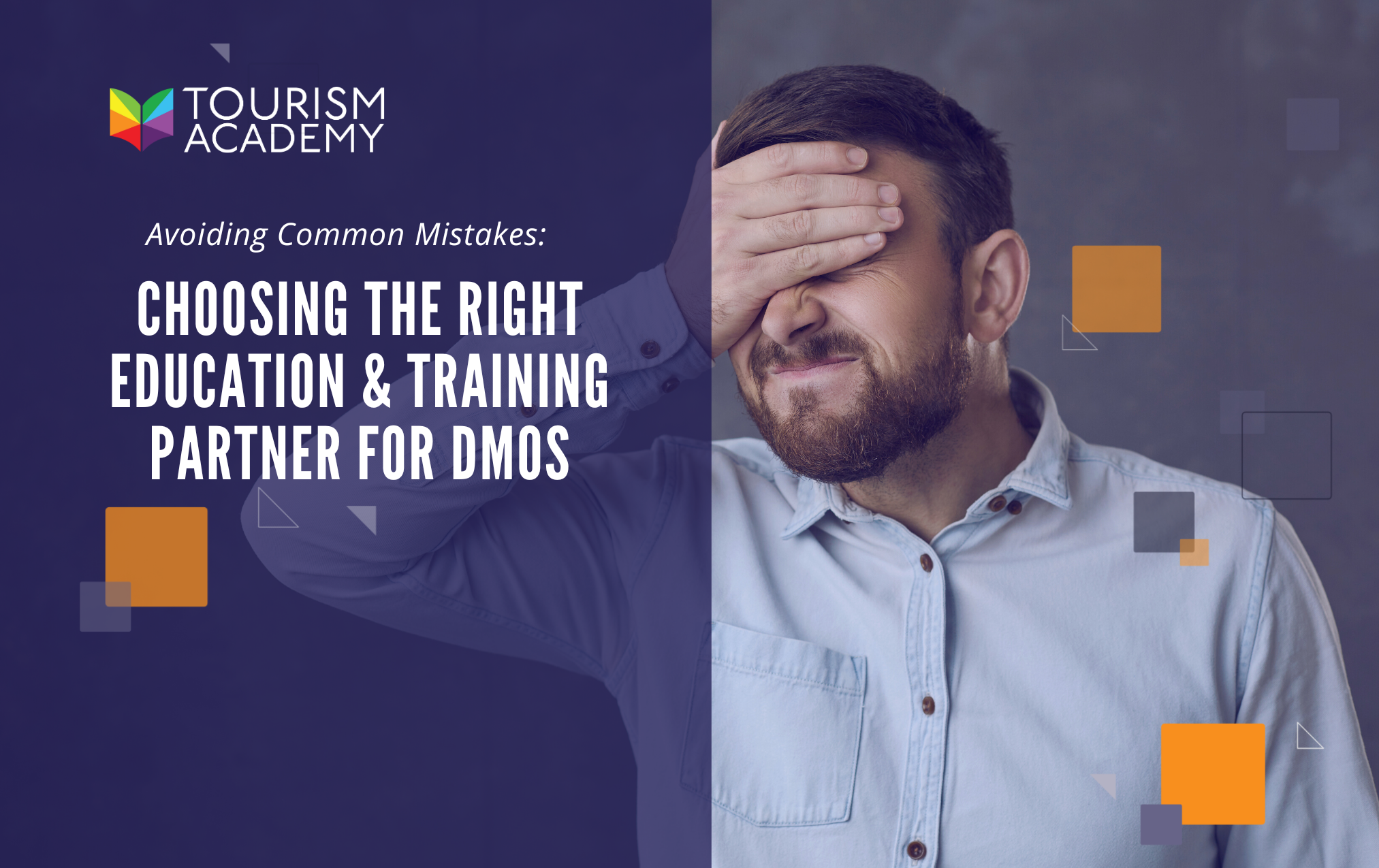
Avoiding Common Mistakes: Choosing the Right Education & Training Partner for DMOs
Destination Marketing Organizations (DMOs) are vital in promoting tourism and enhancing visitor experiences. DMOs often rely on education and training programs to achieve these goals effectively. However, selecting the proper education and training partner is crucial. In this article, we'll discuss common mistakes DMOs make when choosing such partners and provide insights on how to avoid them.
-
Lack of Ownership
One of the most significant mistakes DMOs can make is not owning the course, content, or contacts of their education and training programs. This lack of ownership can lead to a loss of control over critical elements of their initiatives. It's essential for DMOs to ensure they retain ownership or at least have a clear path to obtain it.
ARTICLE: Why Own Your Content
-
Limited Content Control
DMOs should have access to update and make changes to course content swiftly. Outdated content can hinder the effectiveness of training programs. A good partner should provide flexibility in modifying the range to meet evolving needs and industry trends.
ARTICLE: Control Your Content
-
High Per Person Fees
Cost-effectiveness is essential. DMOs should avoid partners who charge exorbitant per-person fees. Overpaying for training can strain budgets and limit the reach of educational programs. Evaluating pricing structures and negotiating reasonable rates is vital.
-
Outdated Educational Methods
Modern adult learners have specific needs, including interactive and engaging educational methods. DMOs should steer clear of partners who rely on dated teaching methods and ignore the requirements of today's learners. Practical training should cater to diverse learning styles and incorporate technology.
ARTICLE: Learn About Instructional Design
-
Underestimating Time Requirements
In-person training can be time-consuming, and DMOs may need to pay more attention to the time it takes to deliver practical training. Planning for an adequate timeframe is crucial to ensure that training is comprehensive and that participants can absorb and apply what they learn.
-
Lack of Accessibility
Accessibility is paramount. DMOs must ensure their training programs are available to all stakeholders, including those who cannot attend in-person sessions. Incorporating digital and remote learning options can broaden the reach of training initiatives.
ARTICLE: Accessibility In Online Learning
-
Inflexible Programs
DMOs should avoid getting stuck in programs that cannot adapt to new challenges and opportunities. The tourism industry is dynamic, and training programs must be flexible enough to evolve alongside it. Partners should be willing to expand and adjust their offerings to meet changing needs.
Conclusion
Selecting the proper education and training partner is critical for DMOs striving to excel in their mission. By avoiding common mistakes such as not owning content, paying excessive fees, and underestimating time requirements, DMOs can ensure that their training initiatives are effective, up-to-date, accessible, and adaptable. Choosing the right partner can empower DMOs to provide valuable education and training that benefits their organization and the tourism industry. Remember, as Maya Angelou said, "Do the best you can until you know better. Then, when you know better, do better." Make informed choices in education and training partnerships to do better for your DMO and its stakeholders.

Leave a comment